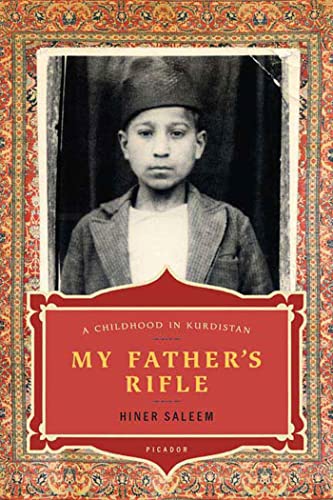A very touching, quick read. Manages to really give a taste of Iraqi Kurdistan before 1991.
Perhaps this book was't meant to be printed in English. I found this book to be badly written.
This short memoir, with its simply told and clearly translated story, tells of a boyhood in Kurdistan, a nation of people divided between four countries: Iran, Iraq, Turkey, and Syria. The struggle for nationhood and freedom from oppression is told through the point of view of a boy growing into manhood.
This novelette tells the story of Azad, A Kurdish boy living in Iraqi occupied Kurdistan, as the lands of the Kurds are seized and their culture destroyed.In 1968, eight year old Azad lives in a small village in Iraqi occupied Kurdistan.
Fairly simple read. I could relate to this book quite a bit due to the fact that I am a Kurd.
There's no arguing that Hiner Saleem, a filmmaker living in Paris and writing in French, is a wonderful storyteller. In the 99 pages of his new memoir, My Father's Rifle: A Childhood in Kurdistan, he manages to pack in Saddam Hussein, Richard Nixon, and Henry Kissinger; a troubled adolescence, girls, and cigarettes; war, art, and pomegranates.
Short bio-novel that gives us an insight of what reality and every day to day is for Kurds, starting from a child's perspective and with a very tender touch inside a Kurdish family.
Heart breaking, the pain, suffering and tragedy of war and barbarism of politics and paranoia of totalitarian governments.
This is the first hand account of a young Kurdish boy growing up in Northern Iraq. The book really informed me of the love the Kurdish people took in their art, poetry, and beautiful landscape, and the trials tribulations and losses they underwent trying to keep them during the Baathist Parties Regeime.
